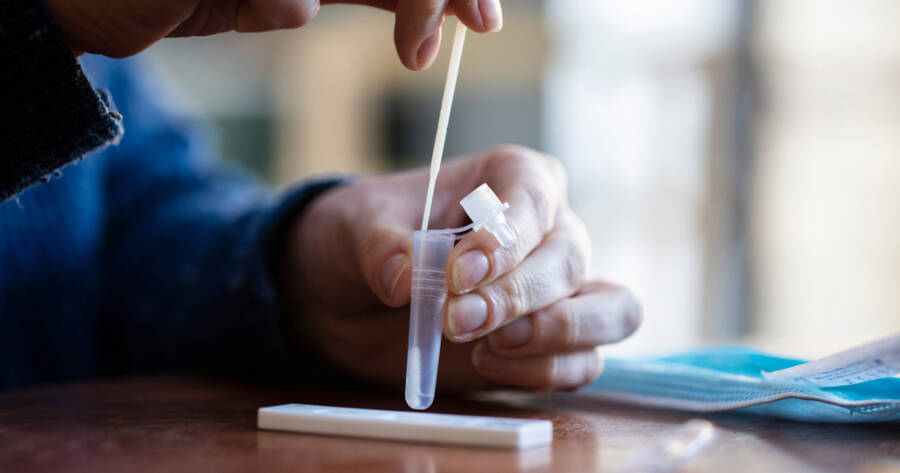As the world continues to adapt to the ongoing challenges posed by COVID-19, at-home testing has emerged as a key tool in curbing the virus’s spread. With government reapproval of home test kits, people can now access a reliable way to test for COVID-19 from home.
How At-Home Test Kits Work
At-home COVID-19 test kits typically fall into two categories: antigen tests and molecular (PCR) tests. Each type has its own strengths and limitations.
Antigen Tests
Antigen tests, also known as rapid tests, detect proteins from the virus. These tests tend to provide faster results, often within 15-30 minutes. They are most effective when someone is symptomatic or has recently been exposed to the virus. However, it is worth noting that while antigen tests can be highly useful for quick screenings, they may not be as sensitive as molecular tests, especially in the early or late stages of infection.
Molecular (PCR) Tests
Molecular tests, on the other hand, detect the virus’s genetic material (RNA) and are generally considered more sensitive and accurate than antigen tests. These tests typically require the sample to be sent to a lab, which means results can take longer—usually between 24 and 72 hours. Many government-approved home kits now include options for lab processing of molecular tests, providing a balance between convenience and accuracy.
Benefits of At-Home COVID-19 Testing
While traditional COVID-19 testing through healthcare facilities remains important, at-home tests offer a variety of potential benefits:
- Convenience: For those who may have difficulty accessing a healthcare provider, at-home testing kits provide a level of convenience that was previously unavailable. With these kits, individuals can collect their own sample, mail it (if necessary), and await results—all without leaving their homes. This convenience makes it easier for people to test when they need to, without long waits or the risk of exposing others in crowded testing locations.
- Timeliness: In the case of rapid antigen tests, individuals can obtain results within minutes, allowing for quick decision-making. This is particularly important for individuals who need to attend events, work, or travel and want to confirm they are not infected with the virus before interacting with others.
- Potential early detection: At-home testing could play a role in identifying infections earlier, which might help prevent further spread. While no test is perfect, and there is a possibility of false negatives or positives, these tests can be one part of a broader strategy to detect and isolate COVID-19 cases.
Limitations and Considerations of At-Home Tests
While at-home testing offers numerous benefits, it’s important to acknowledge its limitations and exercise caution when interpreting the results.
- Accuracy may vary: The accuracy of at-home COVID-19 test kits can vary depending on several factors, including how and when the test is conducted. For instance, a person who is asymptomatic may have a lower viral load, which could reduce the sensitivity of antigen tests. Additionally, incorrect sample collection or storage could affect the outcome.
- False negatives: One of the main risks with at-home COVID-19 tests, particularly antigen tests, is the potential for false negatives. A negative result might provide a false sense of security if the person is actually infected but did not have a detectable viral load at the time of testing. Experts recommend that people who have been exposed to COVID-19 and test negative with an at-home kit should consider retesting or seek a molecular (PCR) test for confirmation.
- Timing of the test: The timing of the test is critical for accurate results. At-home tests, particularly antigen tests, are most effective when the individual is experiencing symptoms or has had recent exposure to the virus. Testing too early after exposure may yield a negative result, even if the person is infected.
What the Reapproval of Government Test Kits Means for Public Health
The reapproval of government-issued at-home test kits signals a recognition of the ongoing need for widespread testing. As new variants of COVID-19 continue to emerge, the ability to test quickly and efficiently is vital for containing outbreaks. At-home tests will likely remain an important tool in the broader public health response, complementing other measures such as vaccination and contact tracing.
Moreover, making testing more accessible through government distribution could help ensure that individuals from various socio-economic backgrounds have the tools to monitor their health and make informed decisions about isolation and treatment.
Find Tests Today!
While at-home COVID-19 test kits offer a convenient and potentially effective method for detecting the virus, it is important to remember that they are not a perfect solution.
Proper use, timing, and, in some cases, confirmatory testing can enhance their reliability. As governments continue to support and distribute these kits, they will likely remain an essential tool in the global effort to mitigate the spread of COVID-19.
